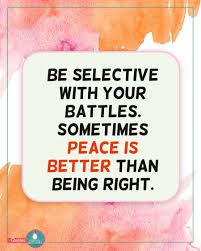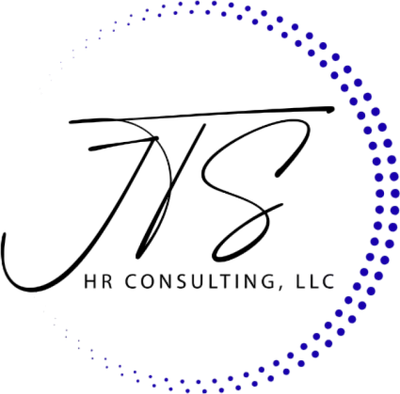Knowing When and How to Choose Your Battles

Conflict is a natural part of life. In the workplace, in families, and in everyday interactions, disagreements surface because people see the world through different lenses. But not every disagreement deserves your time and energy. Some are worth addressing because they touch on values, fairness, or long-term outcomes. Others simply drain your energy, damage relationships, or distract from bigger goals. The real skill isn’t about avoiding conflict—it’s about discernment. Choosing your battles wisely allows you to lead with integrity, preserve relationships, and stay focused on what matters most.
Why Choosing Battles Matters
People who fight every battle risk being seen as combative, resistant, or exhausting to work with. On the other hand, those who avoid all conflict may lose credibility, feel overlooked, or allow unhealthy behaviors to persist. Striking the right balance ensures that:
- Your energy is preserved. You don’t burn out on unimportant disputes.
- Your relationships remain intact. You address issues without eroding trust unnecessarily.
- Your influence grows. When you do speak up, others know it matters.
- Your leadership stands out. You demonstrate wisdom, patience, and emotional intelligence.
How to Know if a Battle Is Worth Fighting
Before stepping into a conflict, pause and ask yourself these questions:
- Does this challenge my values or integrity?
If it undermines your core beliefs or ethical standards, it’s worth considering. - What’s really at stake?
Is this a high-impact decision, or just a matter of personal preference? - Is this the right time and place?
Some conflicts are better handled privately or at a calmer moment. - Will it make a meaningful difference?
Choose battles where your involvement can drive positive change. - Am I the right person to take this on?
Sometimes your role is to support someone else in speaking up.
Strategies for Choosing Battles Wisely
The decision to engage—or not—should be intentional. Here are expanded strategies to help guide your judgment:
1. Distinguish Between Ego and Principle
Ask yourself: Am I trying to prove I’m right, or am I standing up for what’s right? Battles driven by ego often escalate without resolution, while battles grounded in principle build respect and credibility.
2. Evaluate the Relationship
Conflicts can strengthen or weaken relationships depending on how they’re handled. If a disagreement risks damaging a relationship that’s critical to your success or happiness, weigh that heavily before moving forward.
3. Weigh the Costs Against the Benefits
Every conflict comes with a cost—stress, time, possible tension. Compare that to the potential benefits. If the payoff doesn’t outweigh the toll, the wiser choice may be to let it go.
4. Use the “Future Test”
Ask: Will this matter in a week, a month, or a year? If the answer is no, then it’s likely not worth engaging. This perspective keeps you from pouring energy into short-term irritations.
5. Prioritize the Bigger Picture
Sometimes letting go of small issues helps you preserve influence for bigger ones. If you argue every point, your voice gets tuned out. By choosing wisely, your voice carries more weight when it really matters.
How to Engage When the Battle Matters
Once you’ve determined the issue is worth addressing, how you handle it will determine whether the outcome strengthens or damages relationships. Here’s how to step into conflict constructively:
1. Stay Calm and Grounded
Conflict triggers emotions, but composure is your greatest asset. Take a breath, collect your thoughts, and enter the conversation with clarity. If needed, delay the discussion until you can approach it with a level head.
2. Define the Core Issue
Be clear about what you’re addressing. Avoid spiraling into unrelated grievances. Focus on the specific behavior, decision, or situation that needs attention.
3. Communicate with Respect
Frame your perspective around the issue, not the person. Use “I” statements (e.g., “I feel concerned when deadlines are missed”) instead of accusations (“You never do your job on time”). Respectful communication lowers defensiveness and opens space for dialogue.
4. Listen Before You Argue
Active listening shows respect and helps you understand the other person’s perspective. Often, conflicts de-escalate when people feel heard. You may even uncover common ground that changes the direction of the conversation.
5. Focus on Solutions, Not Victories
Winning a battle isn’t always the goal. Aim to resolve the issue in a way that benefits everyone involved. Look for compromises, shared goals, or creative alternatives.
6. Manage Your Boundaries
If the conversation turns unproductive or toxic, it’s okay to pause or walk away. Boundaries protect both your peace and your professionalism. You can always revisit the discussion later with fresh perspective.
7. Follow Up Thoughtfully
After conflict, check in. A simple “I appreciate you having that conversation with me” or “I’m glad we worked through that” reinforces trust and shows maturity.
Real-World Applications
- Workplace: A team member might want to push back on every new process. By choosing only the issues that impact fairness, compliance, or team performance, they build credibility while avoiding unnecessary conflict.
- Family Life: Parents learn quickly that not every small behavior is worth correcting. Picking battles around safety, respect, and values creates harmony while still teaching important lessons.
- Leadership: A manager may disagree with minor changes in budget but save their influence for advocating on issues that impact staff well-being or long-term success.
The Payoff of Discernment
When you learn to choose your battles wisely, you don’t just avoid unnecessary conflict—you build trust, respect, and influence. People recognize that when you take a stand, it matters. You demonstrate emotional intelligence, focus, and leadership.In the end, the battles you don’t fight are just as important as the ones you do. Wisdom lies in knowing the difference.
When HR challenges start impacting operations, culture, or compliance, having the right support matters. JTS HR Consulting offers practical guidance, training, and project-based support tailored to real-world workplaces. Learn more on the Services page.
